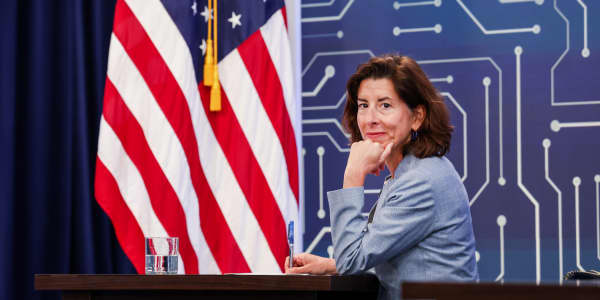The political theatre we have seen in the United States debt ceiling battle has now transferred across the pond in Europe. How Europe handles this though will be very different because of the diversity of the players. I caught up with Jim Rickards, Senior Managing Director of Tagent Capital Partners. Rickards is speaking at Gata Gold conference in London.
LL: What is the political back story going on in Europe?
JR: This is the European version of "never let a good crisis go to waste." Both the EU leadership in Brussels and German leadership in Berlin understand that Germany must bail out the periphery. That much is easy. What is difficult is determining the price that periphery sovereigns must pay in terms of austerity, privatization and future government investment policy.
The price of bail outs will be a transfer of sovereignty in terms of fiscal policy from the member nations to a European center. The EU would like the decision making to go to them, but Germany is writing the checks and would like to call the shots; sort of a new version of the Holy Roman Empire of the middle ages when Germany ruled Europe.
Right now Germany has the upper hand because solutions are improvised on an emergency basis but the EU is insisting on member ratification of the ESFS bail out fund which will make it more of a European project. This will take months, maybe years to play out. Germany will not let go easily. France has the most to lose if Germany emerges as a European economic hegemon.
LL: But if both the EU and Germany are playing their version of political chicken can't they take it too far and really do some serious damage?
JR: Right. What the EU and Germany are doing is similar to what the Republicans and Democrats did on the debt ceiling debate. They played a game of chicken with markets holding their breath in the balance while the political shoving match was going on.
So Berlin and Brussels are playing a game of chicken over who gains power as the bail outs proceed. But while the game goes on, the markets are shaking. The question is do they let the game go on past the tipping point where the Euro-sovereign markets go into free fall? Neither side wants to cave, but markets may cave in the meantime.
LL: By printing money, the problems get larger and pushed down the road. The central banks have no problem printing cash. This is the "next time". Will we go back to the 2009 lows?
JR: Eventually, yes, we will see new lows but not right away. The basic dynamic in the world today is deflation and depression which should push stocks lower. But this is offset by policy induced inflation which tends to push stocks higher as we saw in QE and QE2. Eventually central banks will have to throw in the towel, but not right away. The real crack-up might come in 2013 rather than 2011.
LL: We are hearing the same rhetoric out of Washington on the need to get back to jobs, yet there is no plan on *how* to do it. Isn't this yet another layer of uncertainty for investors?
JR: Yes, uncertainty is the great enemy of capital investment, entrepreneurship and job creation. Many scholars have looked at the initial causes of the Great Depression of 1929-1941, but fewer have asked the question why it lasted so long compared to the short Depression of 1920-1921.
The best answer I've seen is the uncertainty caused by FDR's policies on agricultural price supports, commodity price supports, government works programs, the gold standard and taxes.
Today it's deja vu all over again as the Obama administration perpetuates uncertainty around health care, Bush tax cut expiration, Dodd-Frank regulation, free trade agreements, unemployment benefits, climate change taxes and many other issues. The U.S. has become a hostile business environment from the perspective of U.S. global corporation and others. This has very little to do with budget debates and QE. As long as policy uncertainty reigns, don't expect economic growth or many jobs.
A Senior Talent Producer at CNBC, and author of "Thriving in the New Economy:Lessons from Today's Top Business Minds."
____________________________________________
Questions? Comments? Email us at
Follow on Twitter @ twitter.com/loriannlarocco
Follow NetNet on Twitter @ twitter.com/CNBCnetnet
Facebook us @






